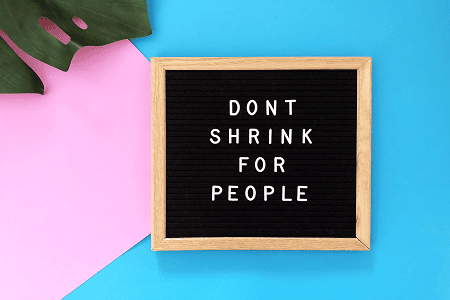![Understanding Anxiety: From Mild Worries to Severe Anxiety Disorders]() Understanding Anxiety: From Mild Worries to Severe Anxiety Disorders
Understanding Anxiety: From Mild Worries to Severe Anxiety Disorders
Anxiety is a natural response to stress, but for many, it goes beyond occasional worry or nervousness. When anxiety becomes chronic or intense, it can lead to an array of disorders, affecting one's daily life and overall well-being. Let's explore some key aspects of anxiety and how it can be managed.
What Is Anxiety?
Anxiety is a feeling of unease, such as worry or fear, that can range from mild to severe. Everyone experiences anxiety at some point, but when these feelings persist or escalate into extreme anxiety, it may signal an anxiety disorder.
Anxiety Disorders Explained
There are several types of anxiety disorders, each characterized by different symptoms:
- Generalized Anxiety Disorder (GAD): A condition of chronic anxiety where one feels excessive worry about various aspects of life.
- Panic Disorder: Characterized by recurring panic attacks, which are sudden periods of intense fear or discomfort.
- Phobias: An irrational fear of specific objects or situations, leading to avoidance and high anxiety.
- Health Anxiety: Also known as hypochondria, this is the excessive worry about having a serious illness, despite medical reassurance.
Symptoms of Anxiety
Recognizing the symptoms of anxiety is the first step toward managing it. These may include:
- Persistent worry or fear
- Restlessness or feeling on edge
- Irritability
- Difficulty concentrating
- Muscle tension
- Sleep disturbances
When these symptoms intensify, they may evolve into more severe anxiety disorders, such as extreme anxiety disorder or chronic anxiety disorder.
Panic Attacks vs. Anxiety Attacks: Understanding the Difference
Though often used interchangeably, panic attacks and anxiety attacks differ in their nature and triggers.
Panic Attacks
A panic attack is a sudden and intense episode of fear, often accompanied by physical symptoms like a racing heart, shortness of breath, or dizziness. These attacks can be overwhelming, striking without warning.
Anxiety Attacks
On the other hand, an anxiety attack typically builds gradually, often in response to a specific stressor. While it may not be as intense as a panic attack, it can still be deeply distressing.
Managing Panic and Anxiety Attacks
If you frequently experience panic or anxiety attacks, it’s essential to seek help. Counselling for anxiety can provide strategies to manage and reduce the frequency of these attacks, helping you regain control of your life.
How Stress and Anxiety Are Connected
Stress and anxiety often go hand-in-hand. While stress is a response to external pressures, anxiety is the body's internal response. When stress becomes chronic, it can lead to an anxiety syndrome or even trigger a panic anxiety disorder.
The Impact of Chronic Stress
Prolonged stress can lead to:
- Depression and Anxiety: Chronic stress may contribute to the development of both depression and anxiety, leading to a vicious cycle of mental health challenges.
- High Anxiety: Persistent stress can elevate anxiety levels, leading to high anxiety or intense anxiety, where everyday tasks become overwhelming.
Seeking Help: The Role of Online Therapy
If you’re feeling anxious or dealing with any form of anxiety, it’s crucial to reach out for support. Online therapy offers a convenient and effective way to manage your mental health from the comfort of your home.
Benefits of Online Counselling for Anxiety
- Privacy: Receive therapy in a private and familiar environment, reducing additional stress.
- Accessibility: Access professional help regardless of your location.
- Convenience: Schedule sessions around your daily routine, making it easier to commit to regular therapy.
Finding an Anxiety Cure: Is It Possible?
While there may not be a one-size-fits-all cure for anxiety, effective treatments and therapies can significantly reduce symptoms and improve quality of life.
Therapy Approaches for Anxiety
- Cognitive Behavioral Therapy (CBT): A popular approach that helps you identify and change negative thought patterns.
- Exposure Therapy: Often used for phobias, this therapy gradually exposes you to your fears in a controlled way.
- Mindfulness-Based Therapy: Helps you focus on the present moment, reducing the impact of stress and anxiety.
Chronic and Severe Anxiety Disorders
For those dealing with severe anxiety disorder or chronic anxiety, ongoing therapy and, in some cases, medication may be necessary. Solymar Online Therapy offers tailored treatments that address the specific needs of individuals facing these challenges.
Conclusion: Take the First Step Toward Healing
Dealing with anxiety can feel overwhelming, but you don’t have to go through it alone. Solymar Online Therapy is here to help you navigate your mental health journey, offering professional support through video counselling. Whether you're dealing with mild anxiety, panic disorder, or extreme anxiety, our therapists are equipped to provide the care you need.
Remember, managing anxiety is a process, but with the right support, you can regain control and live a fulfilling life. If you’re ready to take the first step, consider reaching out to Solymar Online Therapy for a consultation.

 Understanding Anxiety: From Mild Worries to Severe Anxiety Disorders
Understanding Anxiety: From Mild Worries to Severe Anxiety Disorders




